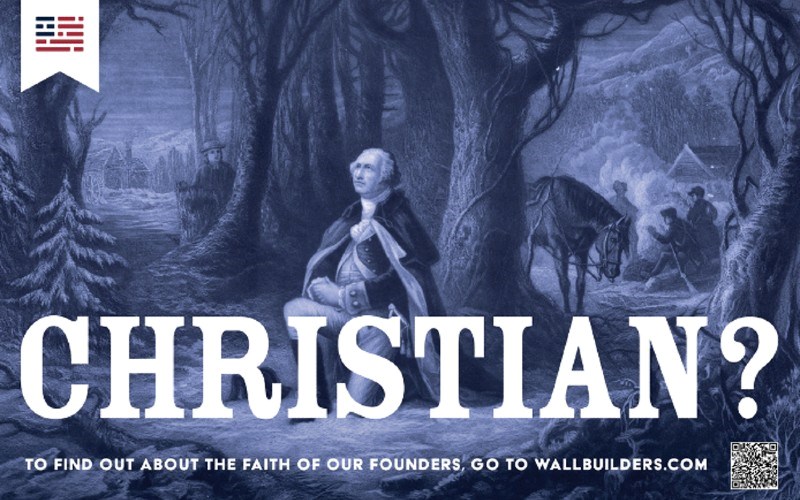WallBuilders wanted to place ads on the buses of Washington Metropolitan Area Transit Authority (WMATA) that founder David Barton explains were very straightforward.
"The ads … posed just a simple question: it was a picture of George Washington kneeling in prayer with a question mark asking: 'Christian?' – and then it gave the website," he tells AFN.
Barton says the goal of the ad campaign was merely to help people learn about the Christian heritage of the United States. "The intention of the ad is to put them in touch with information where they make choices," he states. "And that's why the only information on the ad was the website."

But much to Barton's Surprise, the city of Washington, DC, refused the ads. WMATA's guidelines prohibit advertising "intended to influence members of the public regarding an issue on which there are varying public opinions" and "that promote or oppose any religion, religious practice or belief."
Barton's reaction? "And of course, that's what free speech is all about."
So WallBuilders, with the help of the legal firm First Liberty, is suing. Attorney Ryan Gardner explains the lawsuit asks the court to hold that certain guidelines that WMATA is applying are unconstitutional.
"[Specifically] the guideline that bans any ads upon which there are varying views – and the other is a guideline that essentially bans all religious speech," notes Gardner.
And the attorney argues that while the ads are anything but controversial, they clearly fall under the protection of the First Amendment.
"… Whether we're talking about free speech or free exercise, [the First Amendment] does its most important work where we're talking about something that might be controversial or that other people might have a problem with," he argues.
The name of the case is WallBuilders v. WMATA.







